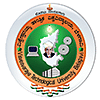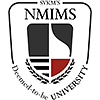MA Philosophy Syllabus and Subjects

The Master of Arts Philosophy syllabus is designed in such a way that it includes the study of reality, existence, and the fundamental nature of knowledge. The course consists of core and elective subjects. Some of the Master of Arts Philosophy subjects are Moral Philosophy, Theory of Knowledge and Reality, Logic and Language, Ethics, Religion, Philosophy of Mind, etc.
Semester Wise MA Philosophy Syllabus
MA Philosophy duration is two years and is divided into 4 semesters. It deals with classical as well as modern philosophy. Philosophy MA syllabus is almost the same in most colleges. MA Philosophy course aims to ensure that the students have access to all the vital information they need to succeed in their careers. The semester wise syllabus is given below:
|
Semester I |
Semester II |
|
Classical Indian Philosophy |
Philosophical Counselling: Indian &Western |
|
Western Philosophy: Ancient Medieval & Modern |
Kant and Hegel |
|
Logic |
Symbolic Logic |
|
Moral Philosophy |
Applied Ethics |
|
Semester III |
Semester IV |
|
Modern Indian Thought |
Gandhian Thought & Peace Studies |
|
Philosophy of Science |
Contemporary Continental Philosophy |
|
Phenomenology and Existentialism |
Philosophy of Mind |
|
Analytical Philosophy |
Philosophy of Religion |
|
- |
Dissertation |
|
- |
Comprehensive Viva-Voice |
MA Philosophy Subjects
The MA Philosophy program consists of core and elective subjects such as Moral Philosophy, Theory of Knowledge and Reality, Logic and Language, Ethics, Religion, Philosophy of Mind, etc. Listed below are few core subjects in the course:
- Classical Indian Philosophy
- History of Western Philosophy
- Philosophy of Language
- Continental Philosophy
- Analytic Philosophy
MA Philosophy Course Structure
MA Philosophy is a two-year postgraduate degree course and is divided into four semesters. The course includes both core and elective subjects. The course includes a comprehensive and detailed study of philosophy at an advanced level. The course structure is given below:
- VI Semesters
- Core Subjects
- Elective Subjects
- Project/Dissertation
MA Philosophy Teaching Methodology and Techniques
The MA Philosophy course curriculum takes into account different teaching methods. Listed below are the different teaching methodologies and strategies in general:
- Conceptual Learning
- Experiential Learning
- Talks from guest speakers
- Traditional Classroom-Based Teaching
- Seminars
MA Philosophy Projects
Projects are given to scholars for interdisciplinary learning. Projects help students in getting experience and training in industrial work. Projects are to be finished by the end of the fourth semester. Some popular MA Philosophy projects topics are:
- Civilian noncombatant’s duty to aid a dying enemy combatant
- Understanding Nietzsche’s perspectivism and reconciling it with perspectival realism
- Ecumenical cognitivism, ecumenical expressivism, and moral disagreement
- Mechanistic philosophy and the use of deep neural networks in neuroscience
MA Philosophy Reference Books
Reference books are available both online and offline by many authors and publications. Reference books are meant for a better understanding of concepts and are also available online in PDF format. Some of the best MA Philosophy books are:
|
Name of the Books |
Authors |
|
The Ethics of Hindus |
S.K. Maitra |
|
Ethical Philosophies of India |
I.C. Sharma |
|
The Theories of Ethics |
Phillippa Foot |
|
Philosophy of Mind |
J. Shofer |
























